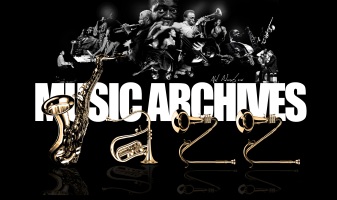
 |
Larry Goldings’ “I Will” -Clear Sounds to Treasure |
Post Reply 
|
| Author | |
snobb 
Forum Admin Group 

Site Admin Joined: 22 Dec 2010 Location: Vilnius Status: Online Points: 30732 |
 Post Options Post Options
 Thanks(0) Thanks(0)
 Quote Quote  Reply Reply
 Topic: Larry Goldings’ “I Will” -Clear Sounds to Treasure Topic: Larry Goldings’ “I Will” -Clear Sounds to TreasurePosted: Yesterday at 5:33am |
|
Pianist Larry Goldings’ repertoire on this trio album is expertly chosen for its variety and melodic appeal.
Larry Goldings, I Will (LP, Sam First Records)  The cover art of Larry Goldings’ I Will Born in Boston in 1968, pianist and organist Larry Goldings is heard here solely on piano in a live set played with a trio also featuring Karl McComas-Reichel on bass and Christian Euman on drums. It’s a striking recording in many ways, starting with the exceptional clarity and precision of the recorded sound. (I am listening to I Will on LP; the compact disc includes two additional tracks, “Somewhere” and “Sing Song.”) Then there’s the exceptional interplay—subtle and playful—amongst the three musicians. Goldings has had a distinguished career. On record, he has collaborated with Jim Hall, John Scofield, Carla Bley, Gary Burton, Chris Potter, and other major jazz stars. He’s accompanied singers as varied as James Taylor, Norah Jones, and Madeleine Peyroux. In 2007, Goldings’ trio recording Trio Beyond, with Jack DeJohnette and John Scofield, was nominated for a Grammy. He was nominated again in 2017 as a sideman to Steve Gadd on Way Back Home. Goldings’ repertoire on I Will is expertly chosen for its variety and melodic appeal. The title tune, “I Will,” is (of course) by Lennon and McCartney. The piece is treated respectfully, even delicately. Goldings begins unaccompanied with a delightfully restless statement of the melody. The bassist sidles in during the second eight bars; the first we hear of the drums is during the last section of the song. Drummer Euman doesn’t feel the need to keep a steady beat here or elsewhere, but when he does, he is tactful and unobtrusive. The rhythm section generally serves for color and to supply a kind of conversational fervor. About four minutes into the Lennon/McCartney tune, Goldings ventures out of tempo—the tone darkens before his improvised ending. Mario Bauzá’s once-popular “Mambo Inn” follows. In the ’50s, the tune was recorded by pianists such as George Shearing, Billy Taylor, John Mehegan, and, more surprisingly, Count Basie on his famous April in Paris album. Goldings’ version is brisk, exuding an easy-going bounce: it’s all daylight and charm. In a final stroke of whimsy, he quotes “Jeepers Creepers” at the end. I Will opens with “Roach,” which I hope was named for percussionist Max Roach. It begins with Goldings playing what I would call a chorus of walking bass: the string bass joins in ambivalently, supplying some barely audible bowed lines, as Goldings tinkers with the dynamics, sometimes fading away temporarily. When the drummer enters, Goldings reasserts himself and the piece turns into a blues over Goldings’ left-hand walking notes. Eventually, the pianist leaves that part to the bass, freeing himself to play block chords, which Goldings tends to use when he becomes excited. During some parts of his solo, Goldings sprays notes all over the keyboard. McComas-Reichel solos after him. I admire Goldings’ embrace of musical indirection. He begins “Embraceable You” by merely hinting at the Gershwin melody via an out-of-tempo opening chorus that sometimes turns lush. He goes on to play the bridge more aggressively. He then gently accompanies McComas-Reichel’s solo with arpeggios and cleanly articulated scales. The vivid, unclichéd interactions of the trio are intriguing throughout. The most surprising number here is “Jesus Was a Cross Maker” by the tragically short-lived, mostly miserable ’70s folk singer Judee Sill. This is a bitter gospel song with an appealing simple chord structure. Her Jesus is a tease. The singer places herself as the woman at the well who hears Jesus’ song and is enticed. But her man subsequently disappears, leading her to sing: “He’s a bandit and a heart breaker / Oh, but Jesus was a cross maker.” The guy’s presence and absence is the cross Sill has to bear. Again, Goldings plays an out-of-tempo introduction while accompanied sketchily by bowed bass. The track then turns into a gently rocking piece that becomes increasingly fervent. McComas-Reichel solos briefly and movingly; he makes you want to sing along. Audiophiles in particular will love the sound of this recording. It features a trio with a distinctive sound, serving up lyrical performances in front of an appreciative (but thankfully quiet) live audience. from https://artsfuse.org |
|
 |
|
Post Reply 
|
|
|
Tweet
|
| Forum Jump | Forum Permissions  You cannot post new topics in this forum You cannot reply to topics in this forum You cannot delete your posts in this forum You cannot edit your posts in this forum You cannot create polls in this forum You cannot vote in polls in this forum |